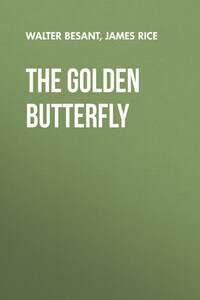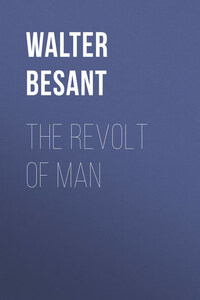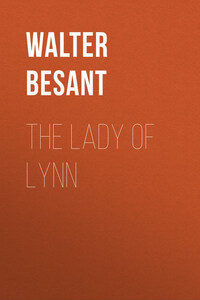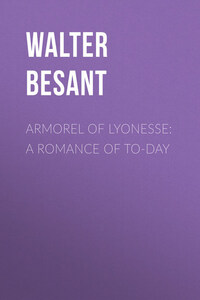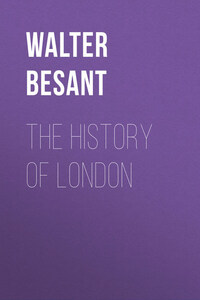The Golden Butterfly, which gives a name to this novel, was seen by an English traveller, two years ago, preserved as a curiosity in a mining city near Sacramento, where it probably still remains. This curious freak of Nature is not therefore an invention of our own. To the same traveller – Mr. Edgar Besant – we are indebted for the description on which is based our account of Empire City.
The striking of oil in Canada in the manner described by Gilead P. Beck was accomplished – with the waste of millions of gallons of the oil, for want of casks and buckets to receive it, and with the result of a promise of almost boundless wealth – by a man named Shaw, some ten years ago. Shaw speculated, we believe; lost his money, and died in poverty.
Names of great living poets and writers have been used in this book in connection with a supposed literary banquet. A critic has expressed surprise that we have allowed Gilead Beck's failure to appreciate Browning to stand as if it were our own. Is a writer of fiction to stop the action of his story in order to explain that it is his character's opinion and not his own, that he states? And it surely is not asking too much to demand of a critic that he should consider first of all the consistency of a character's actions or speeches. Gilead Beck, a man of no education and little reading, but of considerable shrewdness, finds Browning unintelligible and harsh. What other verdict could be expected if the whole of Empire City in its palmiest days had been canvassed?
Moreover, we have never, even from that great writer's most ardent admirers, heard an opinion that he is either easy to read, or musical. The compliments which Mr. Beck paid to the guests who honoured his banquet are of course worded just as he delivered them.
Gilead Beck's experiences as an editor are taken – with a little dressing – from the actual experiences of a living Canadian journalist.
From their Virginian home Jack Dunquerque and Phillis his wife send greetings to those who have already followed their fortunes. She only wishes us to add that Mr. Abraham Dyson was right, and that the Coping Stone of every woman's education is Love. Most people know this, she says, from reading: but she never did read; and the real happiness is to find it out for yourself.
I
"What do you think, chief?"
The speaker, who was leading by a half a length, turned in his saddle and looked at his companion.
"Push on," growled the chief, who was a man of few words.
"If you were not so intolerably conceited about the value of your words – hang it, man, you are not the Poet Laureate! – you might give your reasons why we should not camp where we are. The sun will be down in two hours; the way is long, the wind is cold, or will be soon. This pilgrim has tightened his belt to stave off the gnawing at his stomach; here is running water, here is wood, here is everything calculated to charm the poetic mind even of Captain Ladds – "
"Road!" interrupted his fellow-traveller, pointing along the track marked more by deep old wheel-ruts, grown over with grass, than by any evidences of engineering skill. "Roads lead to places; places have beds; beds are warmer than grass – no rattlesnakes in beds; miners in hotels – amusing fellows, miners."
"If ever I go out again after buffaloes, or bear, or mountain-deer, or any other game whatever which this great continent offers, with a monosyllabic man, may I be condemned to another two months of buffalo steak without Worcester sauce, such as I have had already; may I be poisoned with bad Bourbon whisky; may I never again see the sweet shady side of Pall Mall; may I – "
Here he stopped suddenly, for want of imagination to complete the curse.
The first speaker was a young man of four and twenty – the age which is to my sex what eighteen is to the other, because at four and twenty youth and manhood meet. He of four and twenty is yet a youth, inasmuch as women are still angels; every dinner is a feast, every man of higher rank is a demigod, and every book is true. He is a man, inasmuch as he has the firm step of manhood, he has passed through his calf-love, he knows what claret means, and his heart is set upon the things for which boys care nothing. He is a youth, because he can still play a game of football and rejoice amazingly in a boat-race; he is a man, because he knows that these things belong to the past, and that to concern one's self seriously with athletics, when you can no longer be an athlete in the games, is to put yourself on the level of a rowing coach or the athletic critic of a sporting paper.
Being only four and twenty, the speaker was in high spirits. He was also hungry. He was always both. What has life better to offer than a continual flow of animal spirits and a perpetual appetite? He was a tall, slight, and perhaps rather a weedy youth, a little too long of leg, a little too narrow in the beam, a little spare about the shoulders; but a youth of a ruddy and a cheerful countenance. To say that the lines of his face were never set to gravity would be too much, because I defy any man to laugh when he is sleeping, eating, or drinking. At all other times this young man was ready to laugh without stopping. Not a foolish cackle of idiotic vacuity such as may be heard in Earlswood asylum or at a tea-party to meet the curate, but a cheerful bubble of mirth and good-humour, proof that the spirit within took everything joyously, seeing in every misadventure its humorous side, and in every privation its absurdity.
